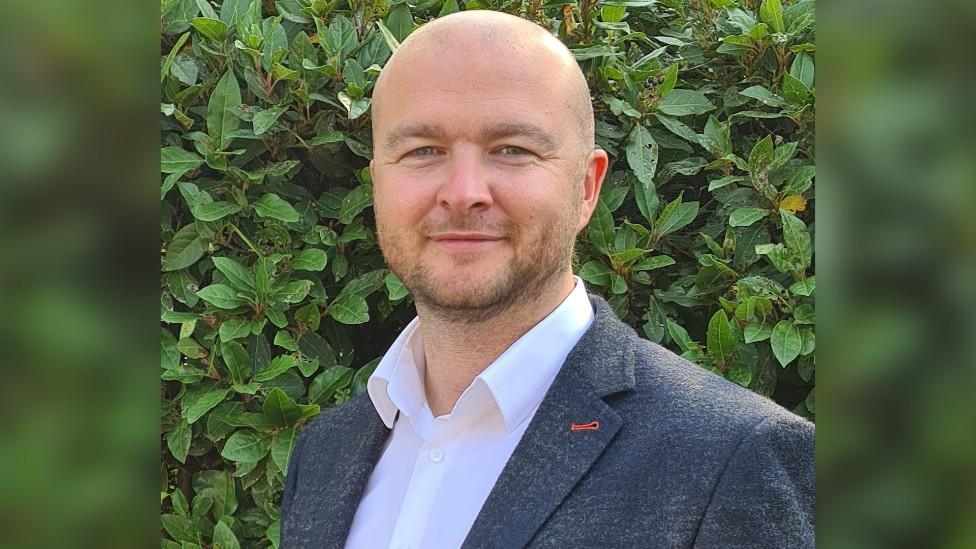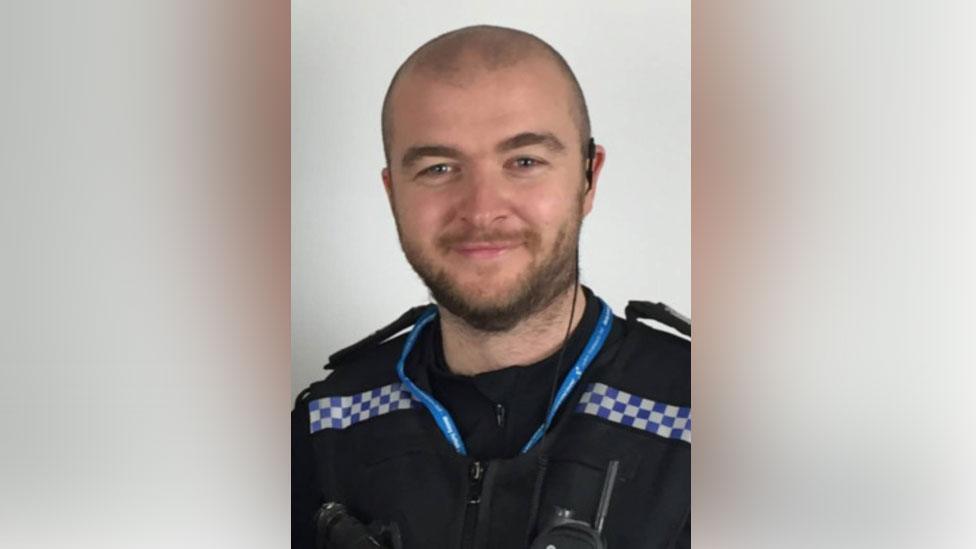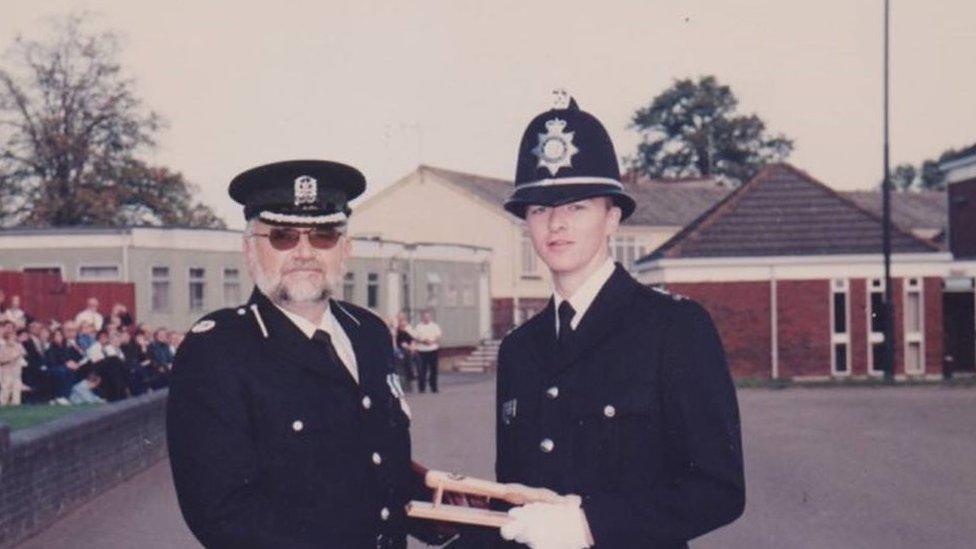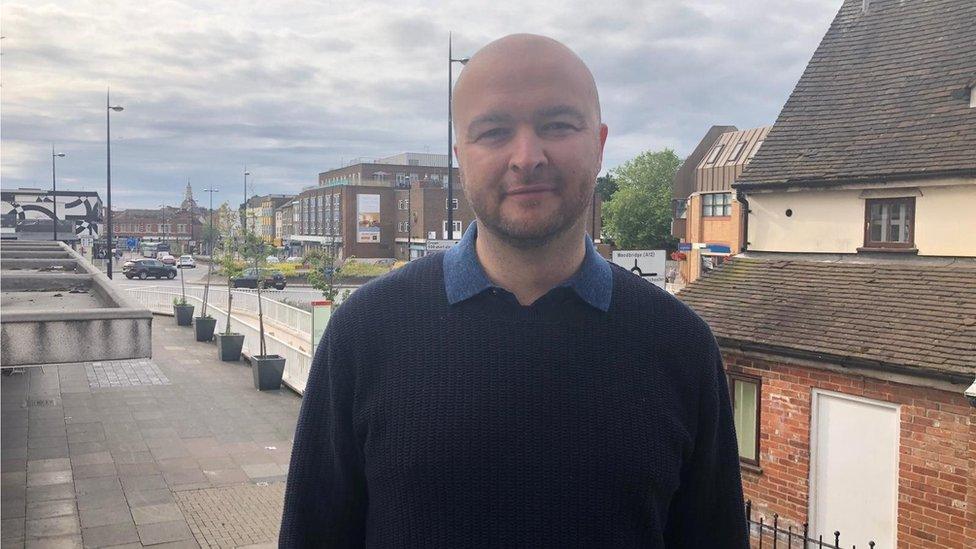Alistair Livingstone book: 'Life as Britain's Supercop broke me'
- Published

Alistair Livingstone has revealed how his job as a police officer took a toll on his mental health
A former policeman who was heralded for making the most arrests in Britain has told of how he was "broken" by life as "supercop".
Alistair Livingstone would arrest up to 700 people in a single year during his career with Suffolk Police.
He has revealed how the job and his reputation as "Robocop" took its toll on his mental health in a new book.
He said he wanted it to raise awareness about the "challenges of policing in a modern society".
In Broken Blue Line, he has written about his pre-policing days of playing international squash for Scotland, his fast rise from police constable to sergeant, dealing with the death of a colleague while on duty and high profile cases including the Steve Wright murders in Suffolk in 2006, external.
Mr Livingstone, who joined the force at the age of 18, wrote: "They used to refer to me as a 'machine' who didn't sleep, lived for the job and just never stopped.
"I became someone that people felt epitomised front-line operational policing. My job defined me.
"I felt like I was indestructible and that I would never suffer with any form of ill health, let alone have a mental breakdown. I was Sergeant Ali Livingstone."

Mr Livingstone was dubbed as "Supercop" and "Robocop" because of his arrest record
He also recalls working as a tactical advisor during the police operation to deal with a double murder and violent disturbance on the West Meadows' travellers' site just outside Ipswich in December 2016.
Mr Livingstone said he worked almost 20 night shifts in a row on the "truly dramatic" operation and it seemed "no sooner than this incident had been resolved, Ipswich descended into a period of violent crime".
He said for the following three months, he and his colleagues in central Ipswich felt they were "fighting a tide of violence", with murders, stabbings, muggings, robberies and attacks on officers.
The former officer said all of these incidents - plus the "pressure of public expectation" and media interest - chipped away at his mental health without him initially realising.

Mr Livingstone joined Suffolk Police at the age of 18
He resigned in June of last year, aged 36, citing post-traumatic stress disorder (PTSD), depression and anxiety.
Mr Livingstone returned to the force briefly this year but said policing was "done" for him.
Now working in a student support role at a high school, he said writing the book was "cathartic" and he hoped it would help others, as well as being of interest to other officers.
Mental health charity Suffolk Mind said writing about traumatic memories could be helpful for some people with PTSD.
It said it could help calm the brain down, so the memory could be safely moved from where it was stuck in short-term memory to long-term memory, so it would stop triggering the symptoms.
Suffolk Police said it took duty of care to all of its employees "very seriously" and provided support for staff and and officers living with PTSD, trauma and complex mental health issues.

Find BBC News: East of England on Facebook, external, Instagram, external and Twitter, external. If you have a story suggestion email eastofenglandnews@bbc.co.uk
- Published8 July 2019

- Published2 July 2015
